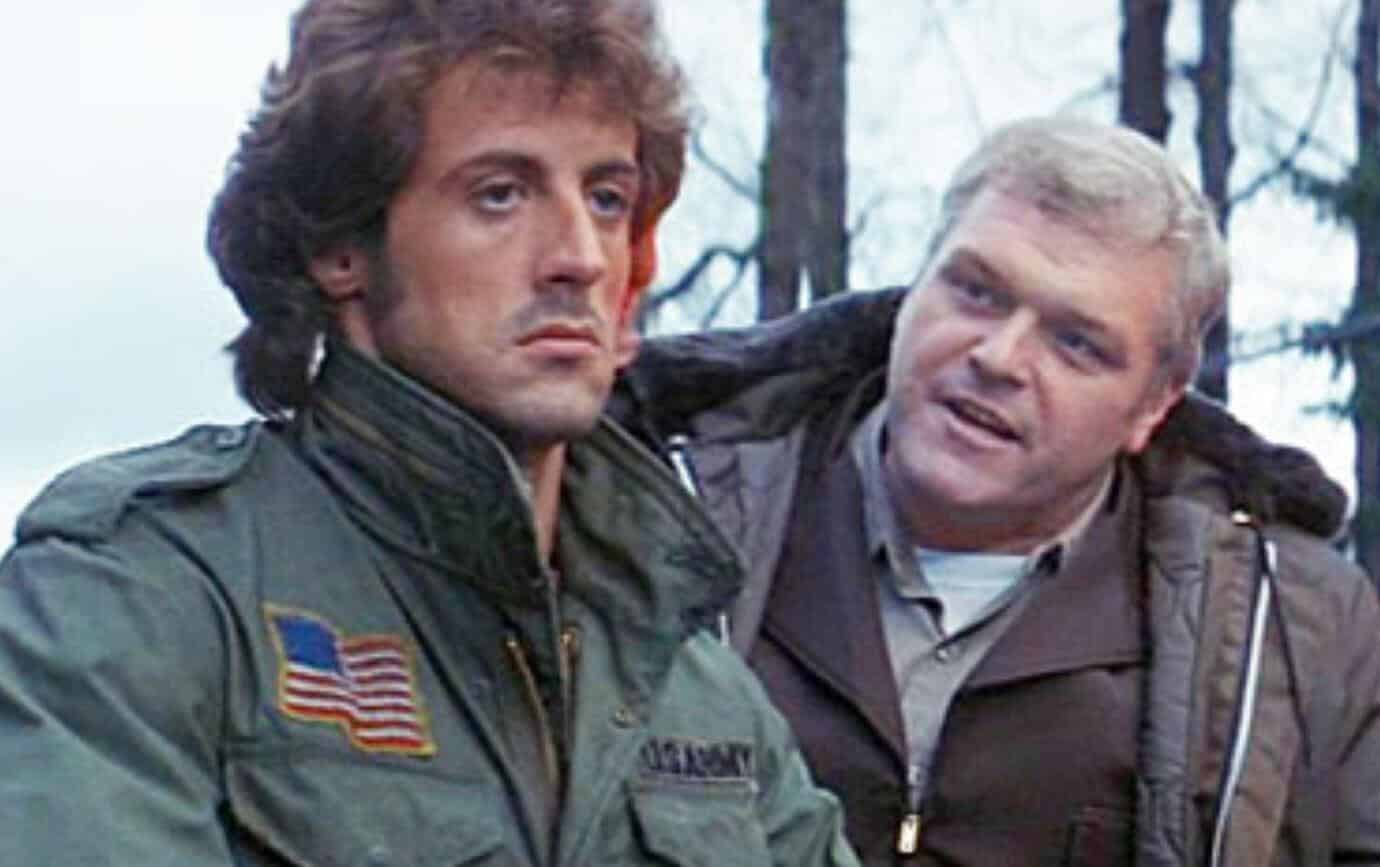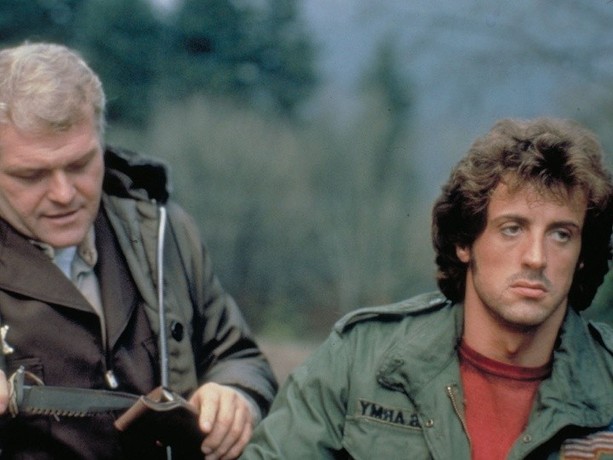First Blood (1982)
First Blood, directed by Ted Kotcheff and based on David Morrell’s 1972 novel, is not just an action movie — it’s a gripping psychological drama about alienation, trauma, and survival. The film introduces John Rambo (Sylvester Stallone), a former Green Beret and decorated Vietnam War veteran who has returned home only to find a country that no longer wants him.
The story begins when Rambo travels through the small mountain town of Hope, Washington, looking for an old war buddy, only to discover that his friend has died from cancer caused by exposure to Agent Orange. Alone and drifting, Rambo heads into town for a meal, but Sheriff Will Teasle (Brian Dennehy) sees him as a vagrant and troublemaker. Teasle orders Rambo to leave town, but when Rambo resists, the sheriff arrests him on charges of vagrancy and resisting arrest.

At the police station, Rambo is mistreated by the officers, who mock him and abuse him physically. Their actions trigger terrifying flashbacks of his time as a prisoner of war in Vietnam, where he was tortured. Overcome by trauma and rage, Rambo fights back, escapes the station, and flees into the nearby mountains with nothing but a knife and his survival skills.

What follows is a tense and thrilling manhunt. The local police, heavily armed and supported by the National Guard, pursue Rambo through the dense forest. However, they are unprepared for his military expertise. Using guerrilla tactics learned in Vietnam, Rambo sets traps, disables his pursuers, and avoids capture with remarkable precision. Despite his lethal abilities, Rambo never kills anyone directly — he merely incapacitates his enemies, highlighting that his conflict is not about vengeance but survival.

As the hunt escalates, Colonel Samuel Trautman (Richard Crenna), Rambo’s former commanding officer, arrives in town. Trautman warns Teasle that Rambo is the best-trained soldier he ever commanded — a “one-man army” who could single-handedly wage a war if provoked. He tries to reason with both Rambo and the authorities, reminding them that the man they’re chasing is a victim of the system that created him.
The film builds to an emotional climax when Rambo, cornered in town, breaks down before Trautman. In a powerful monologue, he describes the horrors of Vietnam and the pain of being rejected by the very country he fought for. His tears and anguish reveal the deep psychological wounds hidden beneath his tough exterior. Trautman persuades Rambo to surrender, ending the standoff peacefully.
Themes and Legacy
First Blood is more than an action film — it’s a story about the forgotten soldiers of Vietnam and the emotional scars they carried home. Rambo represents a generation of veterans struggling to reintegrate into society. His violence is born not from hatred but from alienation and pain.
The film’s blend of action, emotion, and social commentary made it a critical and commercial success. It spawned a long-running franchise, but First Blood remains the most grounded and human of the series — a haunting portrayal of a soldier lost in his own homeland.
Would you like me to write the next one (Rambo: First Blood Part II, 1985) in the same detailed 500-word style?



